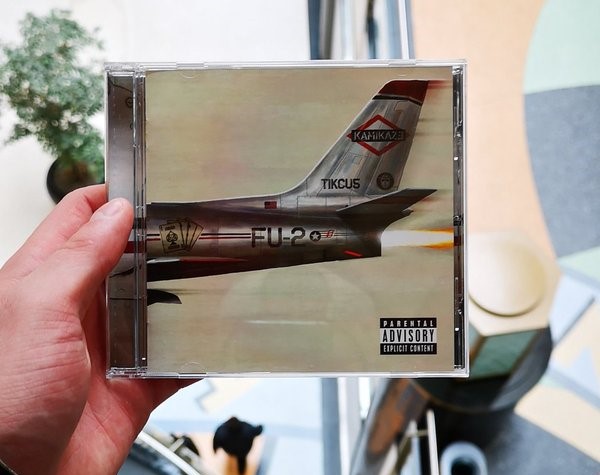
Where do you go once you’ve strayed so far from your early sound? If you’re Eminem, you go back to your roots. Recovery topped the Billboard 200 with a monstrous 741,000 copies in its first week, but it also found Eminem embracing the pop music machine he once despited.

The latter track opened the floodgates for a slew of unfortunate collaborations with high-profile pop stars that would float Eminem to the top of the charts for the next several years. It also birthed two bombastic, chart-topping singles, the preachy “ Not Afraid” and the mawkish “Love the Way You Lie” featuring Rihanna. This tonal shift made for the inspired “ Talkin’ 2 Myself,” where Eminem acknowledges his recent artistic shortcomings and cops to feeling intimidated by the rise of rappers like Lil Wayne and Kanye West. The ensuing collection pivoted from the try-hard horrorcore dreck of Relapse and strove for optimism in the midst of personal turmoil, as Eminem rapped about overcoming addiction and falling back in love with music. In 2010, he released Recovery, originally supposed to be Relapse 2 before the songs took on a new direction. 1 single on the Hot 100, the Dre- and 50 Cent-assisted party anthem “ Crack a Bottle.” Yet despite its commercial success, the album's repulsive sexploits and half-baked shock tactics prevented it from being a proper hero’s return in the eyes of critics.

Relapse debuted atop the Billboard 200 with 608,000 copies and spawned Eminem’s second No. Regrettably, the album also featured some of his most ghastly lyrics to date: tales of blacking out and slaughtering innocent bystanders (“ 3 a.m.”), being force-fed Valium by his mother as a child (“ My Mom”) and being defiled by his stepfather in the shed behind his house (“ Insane”). Dre and reintroducing his alter ego Slim Shady for a song cycle that touched on his trip to rehab and subsequent relapse. It was a quintessential big-budget comeback spectacle, reuniting Eminem with all-star producer Dr.

He reemerged, newly sober but hardly more mature, with 2009's Relapse, his first studio album of new material in five years. Following a trio of albums in the early 2000s that each moved seven figures in their first weeks-2000’s The Marshall Mathers LP, 2002’s The Eminem Show and 2004’s Encore-and further established hip-hop as a popular music juggernaut, Eminem retreated from the spotlight to iron out his personal life.


 0 kommentar(er)
0 kommentar(er)
